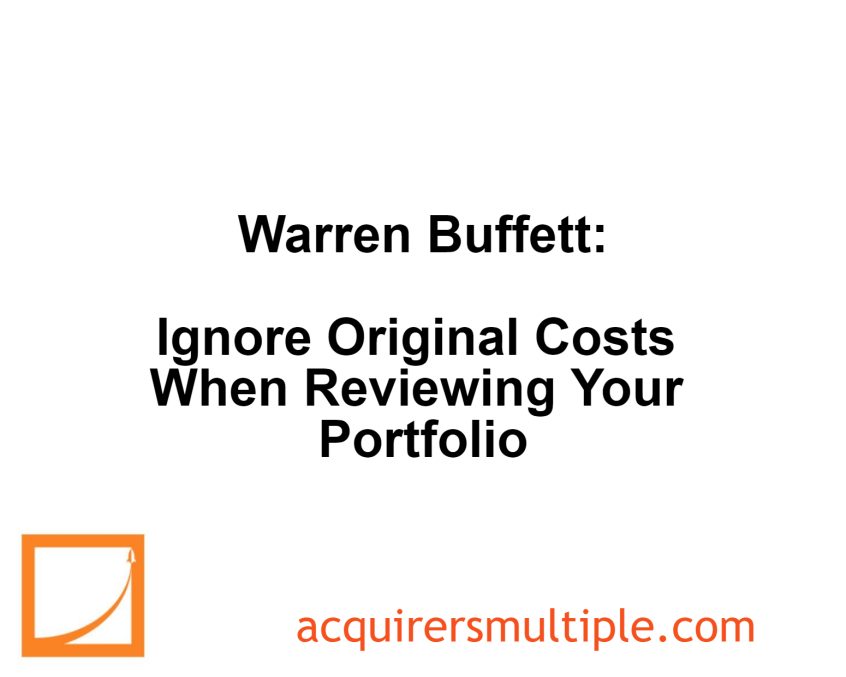During the 2009 Berkshire Hathaway Annual Meeting, Warren Buffett explained why you should ignore your original costs when reviewing your portfolio. Here’s an excerpt from the meeting:
AUDIENCE MEMBER: Hello, Mr. Buffett. Sorry, about that. Mr. Buffett and Mr. Munger, my name’s Kelly Cardwell from Warrenville, Illinois.
Guys, if either of you were starting a smaller investment fund today, let’s say in Warrenville, Illinois, $26 million fund called Central Square Capital — hypothetically?
WARREN BUFFETT: What? You’ll get billed for a commercial later on. (Laughter)
AUDIENCE MEMBER: With this smaller asset base, what would you do differently, both in terms of the number of positions and frequency of turnover?
For example, if you owned a portfolio of 10 stocks and five of them doubled in a short time period, would it make sense to actively manage the portfolio and take profits in the five that had doubled and redeploy the proceeds into your positions, into the ones that had not moved higher, where, presumably, more upside exists and the odds are more dramatically stacked in your favor? Or would you favor the strategy of sitting on your hands in the name of long-term investing?
WARREN BUFFETT: We would own the half of dozen or so stocks we like best. Their — and it wouldn’t have anything to do with what our cost on them was.
It would only have to do with our evaluation of their price versus value. It doesn’t make any difference what the cost is.
And incidentally, if they went down 50 percent, we would say the same thing. I — you know, and using your illustration, I don’t know whether that fund has actually had something that went up or went down.
So, we would — our cost basis, except in rare cases — and we actually have a situation like this at Berkshire now, which I may explain a little later. But the cost basis doesn’t have anything to do the fund.
When Charlie and I ran funds, we didn’t worry about whether something was up or down. We worried about what it was worth compared to what it was selling for.
And we tried to have most of our money in a relatively few — very few — positions which we thought we knew very well. We do the same thing now. We’d do the same thing a hundred years from now.
Charlie?
CHARLIE MUNGER: Yes, he’s tactfully suggesting that you adopt a different way of thinking.
(Laughter and applause)
You can listen to the entire discussion here:
For all the latest news and podcasts, join our free newsletter here.
Don’t forget to check out our FREE Large Cap 1000 – Stock Screener, here at The Acquirer’s Multiple:



